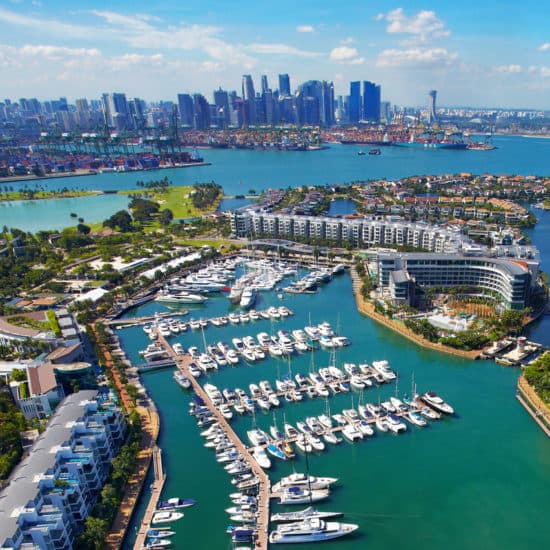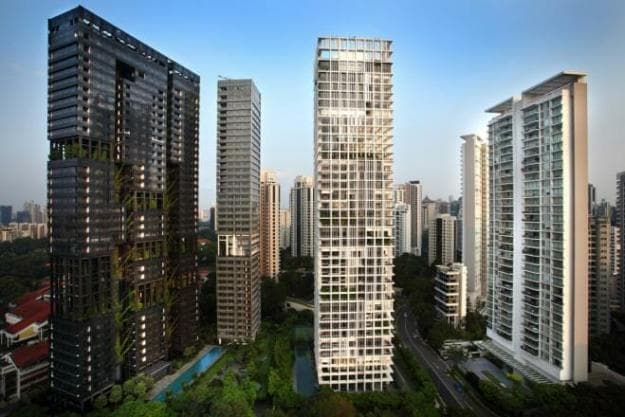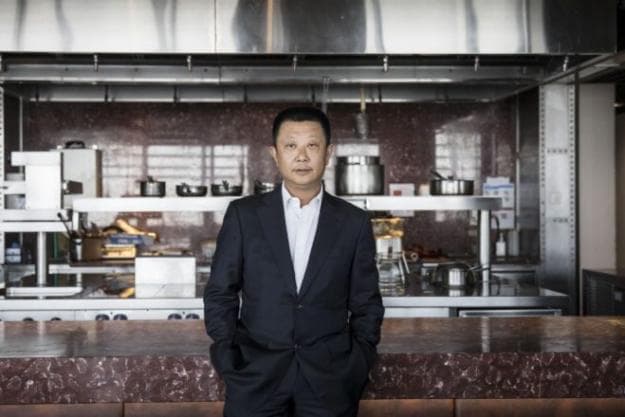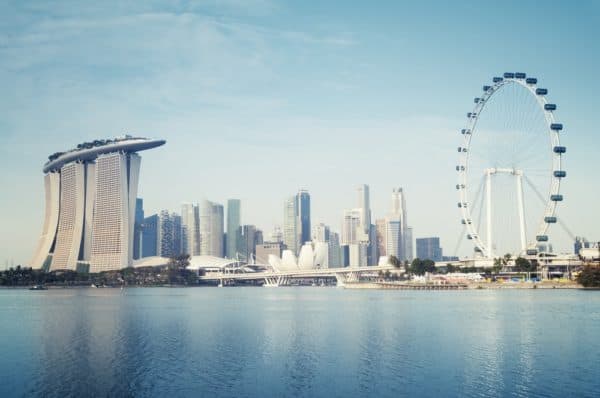Singapore is attracting wealth and significant pecuniary investments from many global investors, and the Singapore Realty Market is reaping the benefits. The Little Red Dot pulled off its magic yet again with the exceptionally well-managed crisis control. Initially, it wasn’t as clear if Singapore would weather the storm too well, but in no time the true picture of the situation cleared up, especially when compared with other countries’ clumsy Covid-19 pandemic handling.

ONE ̊15 Marina Sentosa Cove offers the life of luxury living and yachting
Singapore came out of this crisis with a reinforced image as a top country in the world for safe and comfortable living. This naturally had a major effect on the financial and property markets.
Singapore Property Market’s Resilient Growth
Despite non-existent international travel, billions of dollars streamed into Singapore. The residential property showrooms were filled with local buyers, who were purchasing properties in numbers exceeding pre-Covid levels. The grand finale was in December 2020, with sales up 126 per cent compared to a year ago, making this the highest performance in the month of December in eight years.
And to remind you, the foreign buyers are still missing in the showrooms and are mostly absent in the residential property markets. One can just imagine the actual build-up demand for investing in a slice of the Singapore realty market. And that is despite the draconian cooling measures that were applied on the forever-in-demand residential property of this shining beacon of safety and stability in the world.

The 43-unit Le Nouvel Ardmore (centre) and the neighbouring Nouvel 18 (left) were designed by French architect Jean Nouvel, attracts many global investors.
Big Foreign Investors
On the money front: the Google co-founder Sergey Brin, the world’s ninth-richest person with a personal fortune of USD 86.5 billion, is setting up a family office in the Lion City to manage his wealth. He is one of the latest billionaires to take advantage of Singapore’s low taxes and relative ease to set up and run family offices. Family offices are private investment companies, sort of small private banks, which are set up to manage the assets of wealthy individuals and families. Singapore has hundreds of such offices, that just grow in numbers. These offices are good for the Singapore economy as they employ local people, and the big money is moving to other parts of the economy.
Wooing Tycoons
The city-state had become a “magnet” for tycoons from around the world with some taking up local citizenship. One such example is a billionaire Facebook co-founder and internet entrepreneur Eduardo Saverin with a networth of USD 12 billion, who moved to Singapore some 10 years ago. This “magnetism” became stronger in recent years and especially during the pandemic. The more recent arrivals are Ray Dalio, with a networth of more than USD 15 billion, the founder of Bridgewater Associates, who opened a family office in Singapore last November to run his investments and philanthropy throughout the region.
The family office of James Dyson, the billionaire founder of vacuum cleaning giant Dyson Ltd, incorporated in Singapore in late 2019. He has a networth of about USD 11.9 billion, making him the United Kingdom’s second-richest person.
Attracting The Rich Chinese
But not only the well-known billionaires from the west move to Singapore with their money. There are many rich Asians, who use Singapore as their base, too, and especially so the super-billionaires from China, such as the richest person in Singapore Li Xi Ting, the founder, and CEO of a company that supplies medical devices. During the Covid period, his worth swelled to USD 18.1 billion, according to Forbes’ Billionaires List, as countries around the world are buying his company’s medical products, which include ventilators.

Haidilao founder Zhang Yong topped the list in 2020 for Forbes Singapore’s Richest list
His ex-compatriots, the current Singapore citizens are Singapore’s richest couple. The founders, Zhang Yong and wife Shu Ping are the owners of a spicy hot pot chain Haidilao. They cooked up a storm and with a combined networth of USD 19 billion they own and run two family offices with equally divided sums of money under management.
Rise of Singapore Billionaires
Another noteworthy China-born billionaire is the founder of Singapore’s most valuable company, Sea, Forrest Li. His company soared on the stock exchange and so did his fortune, around USD 10 billion, as estimated at the end of last year. There are many other wealthy people who moved their money and their home base to Singapore recently. But not only the uber-rich do it. Many well-to-do people from neighbouring countries and from further afar are moving to Singapore and they know what they are doing as lots of recent ratings confirm the desirability of Singapore.
ECA International rated Singapore as the most liveable place in the world for the 15th consecutive year for overseas workers based on a January 2021 report. The ratings also reflect the city-state’s superior infrastructure, low pollution, and relatively mild and successful lockdown.

Based on Transparency International’s Corruption Perceptions Index Singapore is one of the five least corrupt countries in the world, perfect to woo investors.
Wellington in New Zealand was second. Japanese cities of Osaka, Tokyo, and Nagoya at third, Copenhagen in a sixth-place, Vancouver, Basel, and San Francisco in 17th place, and Hong Kong in 58th pace, to name a few. In Bloomberg’s latest Covid Resilience Ranking list, Singapore is high up on top of the list. According to Transparency International’s Corruption Perceptions Index Singapore is one of the five least corrupt countries in the world, and so on.
All these data points will draw more attention to Singapore markets as the shine of Singapore is now even further accented by the mismanagement of the pandemic in the west and other countries in the world. Read about Singapore’s positive property outlook here.
Raring To Go
Singapore’s Deputy Prime Minister and Finance Minister Heng Swee Keat was quoted saying: “Interest rates today are ultra-low, and in some cases even negative, so this can lead to a significant mispricing of asset prices and a significant risk of investing in the wrong places”.

The living area of Wallich Residence super penthouse, attracting big investors like James Dyson to buy a unit there.
This is solid advice for any investor. What has been happening in recent weeks is that following the rumours of further government intervention, many buyers rushed to the showrooms to purchase properties. Naturally, such a situation is contra-productive to all – the buyers and the sellers, as eventually, the markets want to find their natural equilibrium between the demand and supply and remain as free from government intervention as possible. Property is the most desirable type of investment for most Asians. More investors trust property and prefer it over stock markets. Naturally, the quantum of investment in property tends to be the biggest for most people and hence the Singapore government is rightfully concerned that buyers won’t overextend themselves, while investors in financial markets are left to their own devices.
The post Wealth Magnetism – A Boom Time for Singapore Realty Market appeared first on LUXUO.
from LUXUO
No comments:
Post a Comment